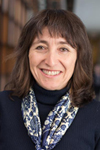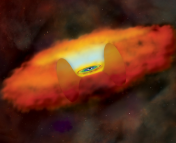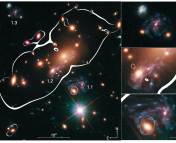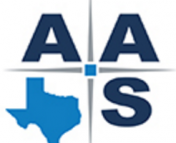In this series of posts, we sit down with a few of the keynote speakers of the 229th AAS meeting to learn more about them and their research. You can see a full schedule of their talks here!
 Prof. Wendy Freedman’s work focuses on a parameter that lies at the heart of cosmology — the Hubble constant.
Prof. Wendy Freedman’s work focuses on a parameter that lies at the heart of cosmology — the Hubble constant.
Freedman is an Astrophysics Professor at the University of Chicago, and received the Dannie Heineman Prize to recognize her outstanding work in the field of astrophysics. She will be giving her prize lecture at #AAS229 entitled: “Increasing Accuracy and Increasing Tension in H0”
“I never thought of pursuing a professional scientific career,” Freedman recalls from her early days. However, while a student at University of Toronto, professors were supportive of her passion for astrophysics, and she never looked back. After obtaining her B.Sc., Freedman remained at the University of Toronto to complete her Ph.D. in Astronomy and Astrophysics. She later became a faculty member at the Carnegie Observatories in Pasadena, California, where her work focused on measuring cosmological distances using cepheids. In her words, “The Hubble constant is probably the most important parameter in terms of constraining cosmology”; however, few people considered the multitude of systematic errors affecting the initial measurements of such an important parameter.
While Freedman largely used cepheids to measure cosmological distances early in her career, she is becoming increasingly interested in uncovering the systematics of other rungs of the distance ladder. In particular, her team uses the tip of the red giant branch to probe larger volumes. This tip is a feature of lower mass stars undergoing a helium flash and typically pushes these stars to a similar luminosity — thus, we can use the stars in the “tip” as standard candles. These stars can be found in stellar halos of both spiral and elliptical galaxies, making them easier to observe than cepheids — and to larger distances.
Freedman has held a number of positions during her career in academia, including co-leading the Hubble Space Telescope Key Project, Director of the Carnegie Observatories, and chair of the board of directors for the Giant Magellan Telescope. From her various roles, she has seen the many sides of academia, and she encourages young researchers to “enjoy your work, even though sometimes there are obstacles.”
In her talk, Freedman will explore the need to obtain precise measurements of the Hubble Constant, as highlighted by the recent discrepancy between traditional measurements and that from the Planck satellite. To learn more, make sure to see her talk on Jan. 5th, at 3:40 pm at #AAS229!



